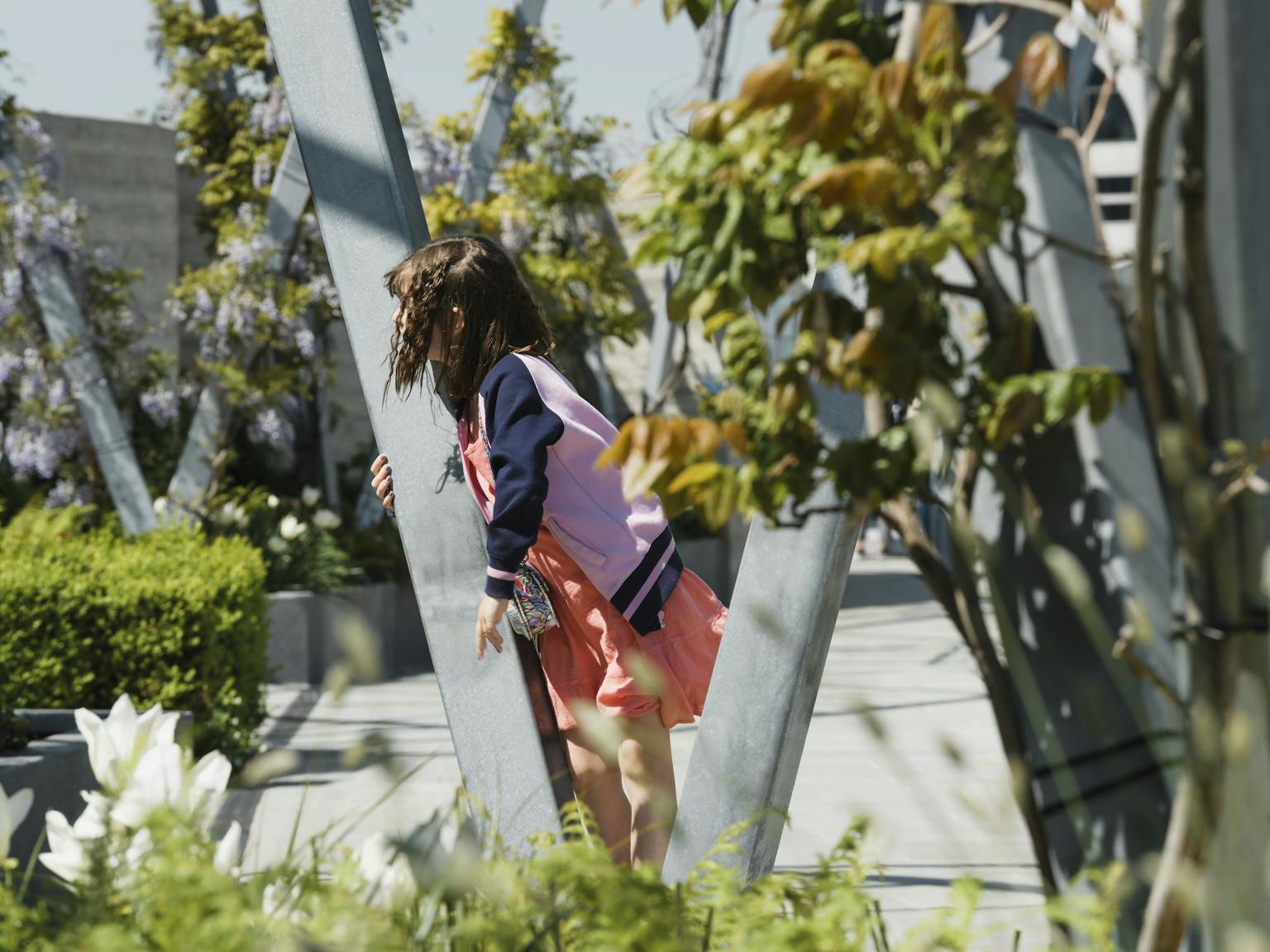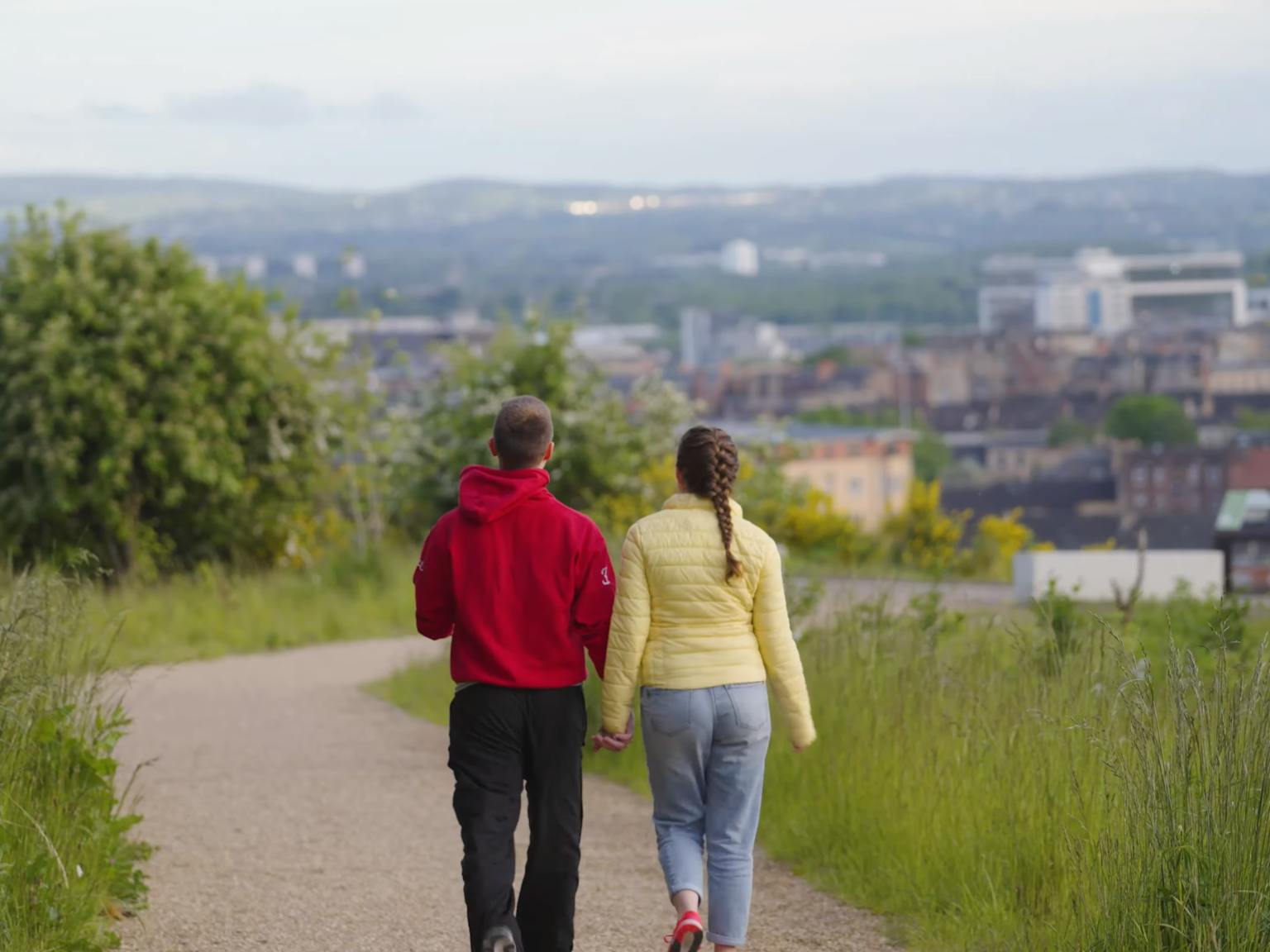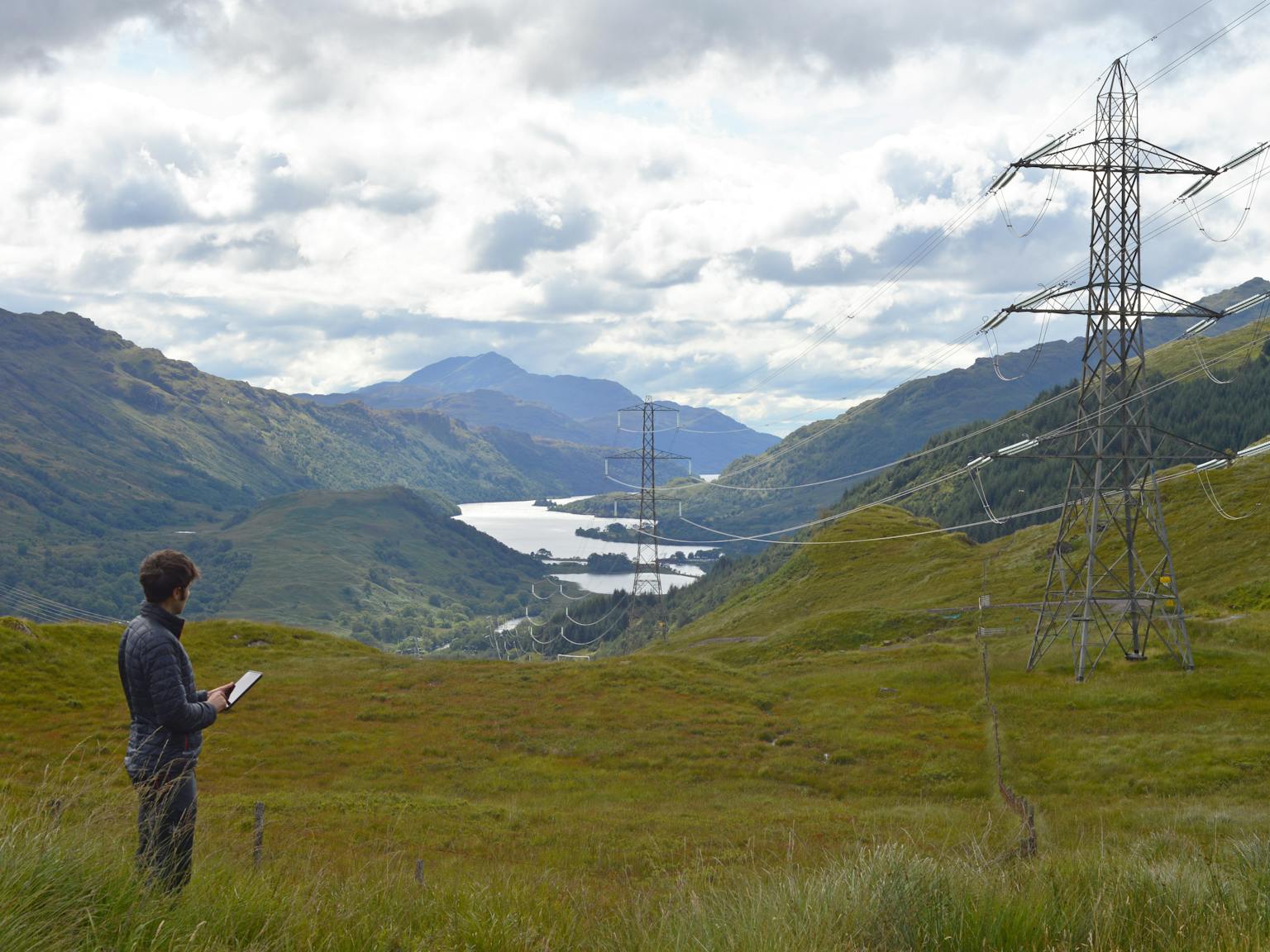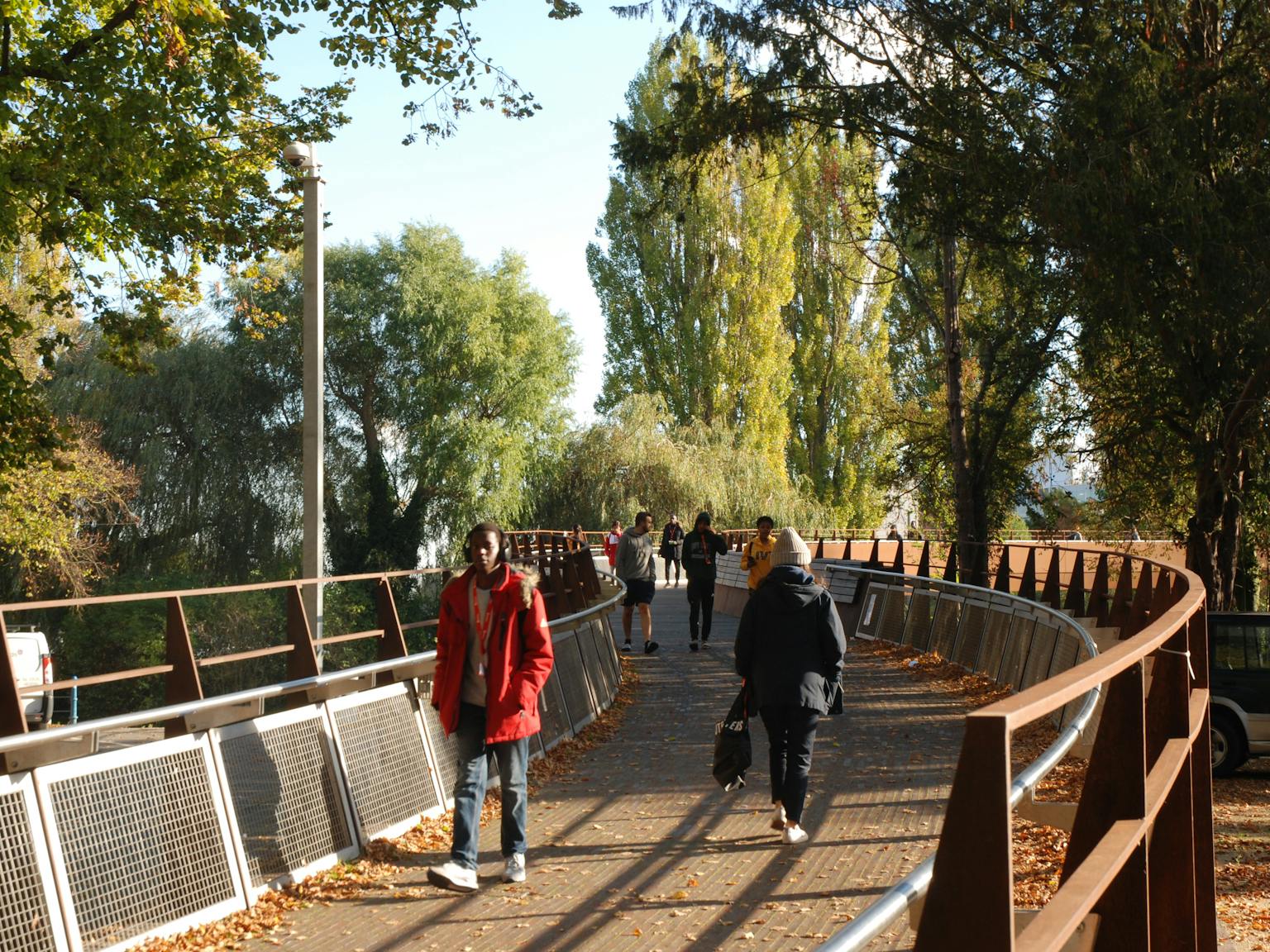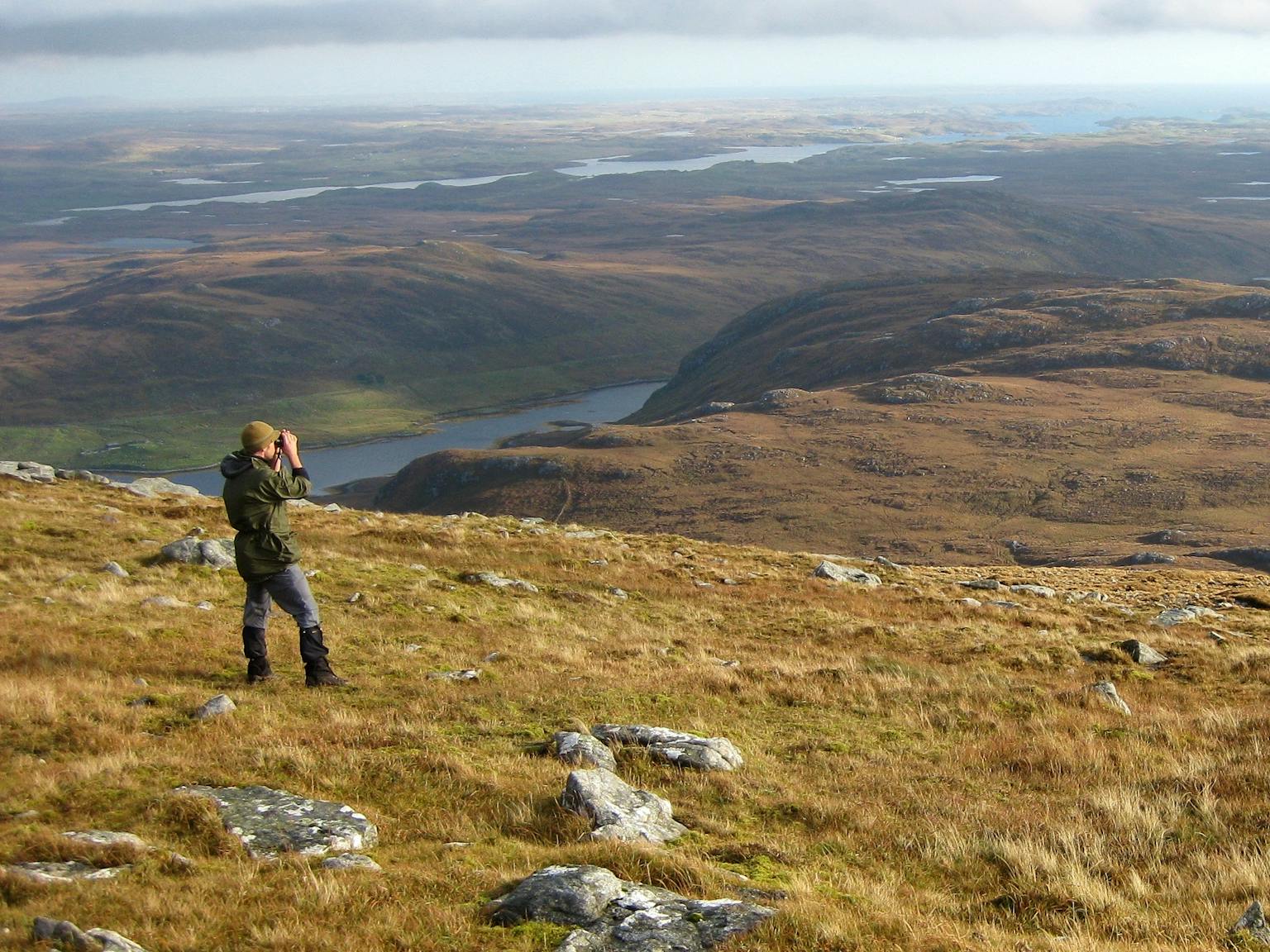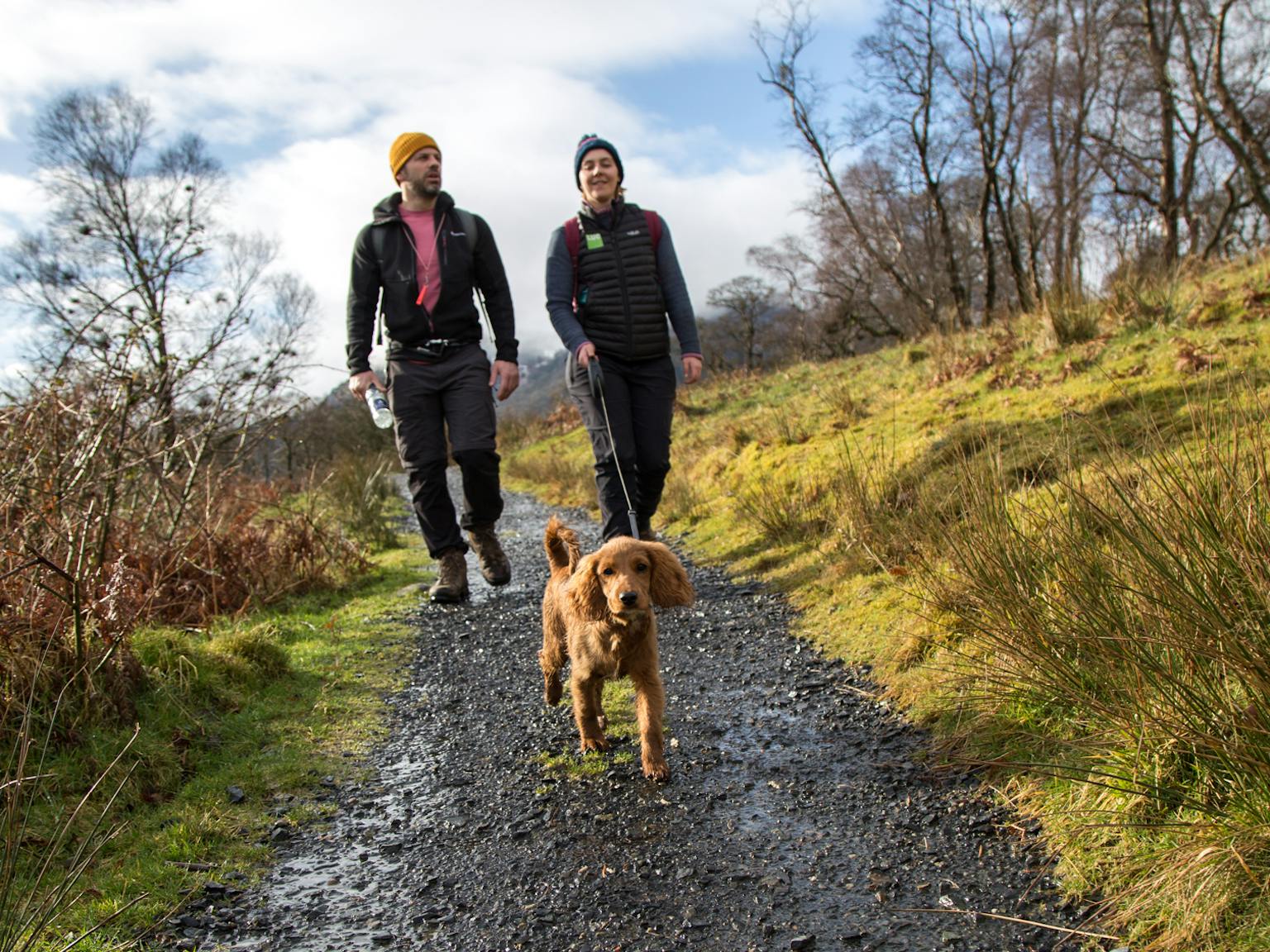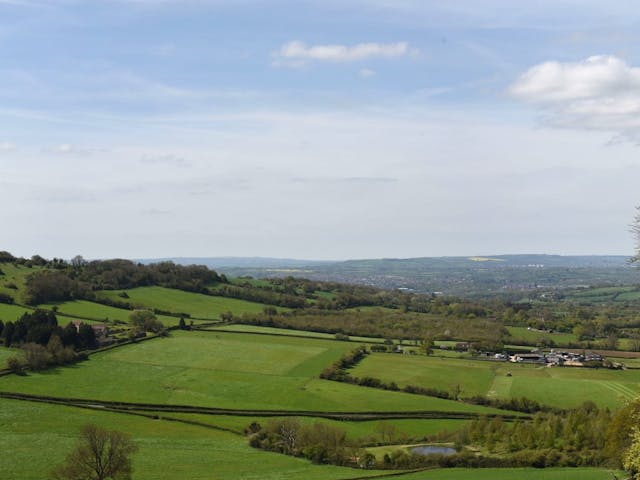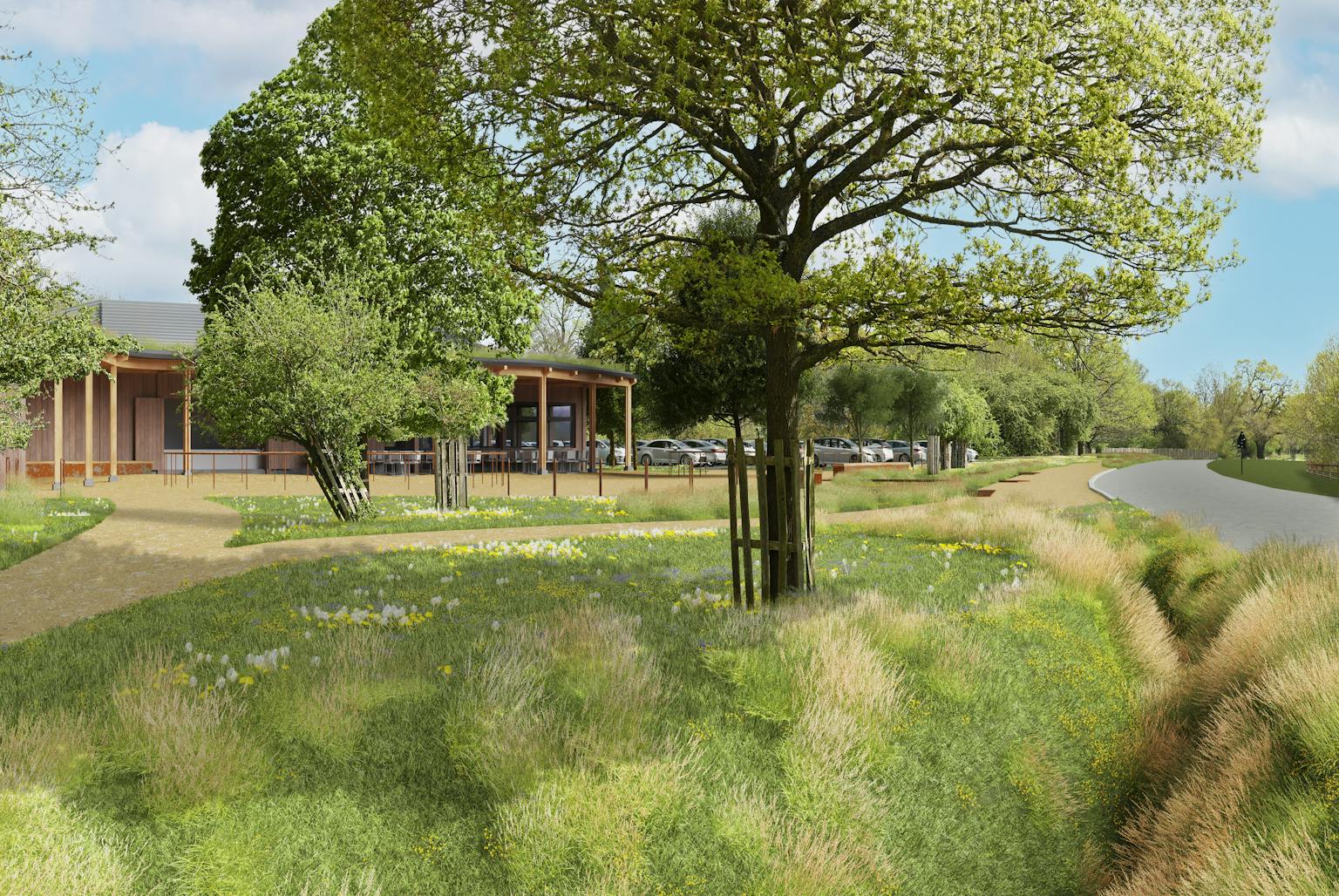
Planning permission granted for new café in Richmond Park
Planning permission has been approved for a new café at Roehampton Gate in Richmond Park.
The Royal Parks charity, which manages London’s eight Royal Parks, will lead the project to create a high-quality café that better serves visitors while enhancing the surrounding landscape.
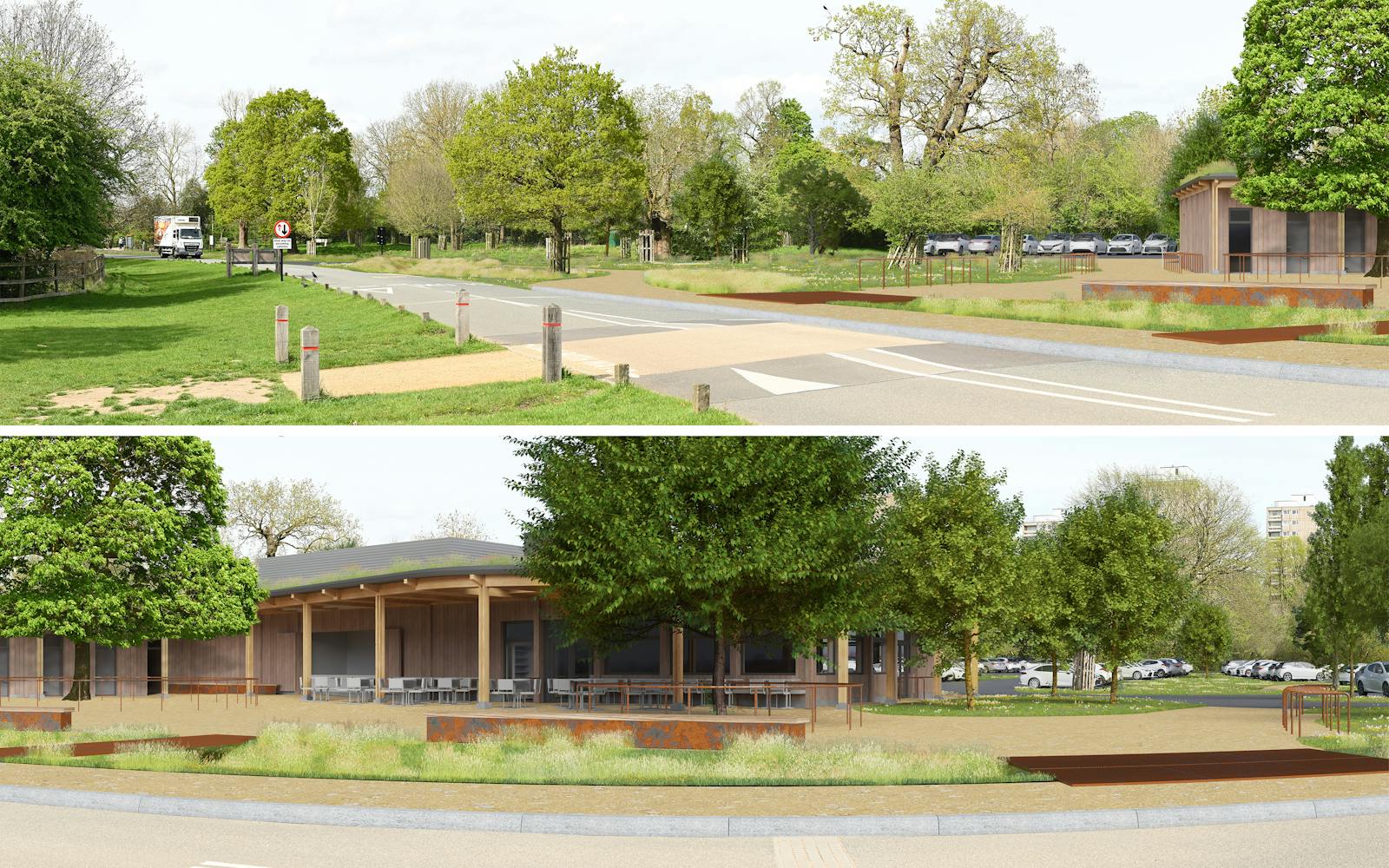
LUC’s role: planning, ecology, heritage and visualisation
LUC supported the project by providing development planning services, ecological and heritage input, and visualisations. Our ecology team carried out ecological surveys, ecological impact appraisal and Biodiversity Net Gain (BNG) assessment. Our historic environment team also prepared the Historic Environment Assessment to support the planning application.
LUC’s visualisation team produced a suite of verified views, helping illustrate how the proposed café would sit within the park’s landscape. The project team faced the unusual challenge of comparing the proposal with a building that no longer exists.
The original Pavilion, destroyed by fire in 2004, was considered alongside the current temporary structures as part of the baseline analysis. This comparative approach fed into the Zone of Theoretical Visibility (ZTV) and final visual outputs, some of which featured in the planning committee presentation.
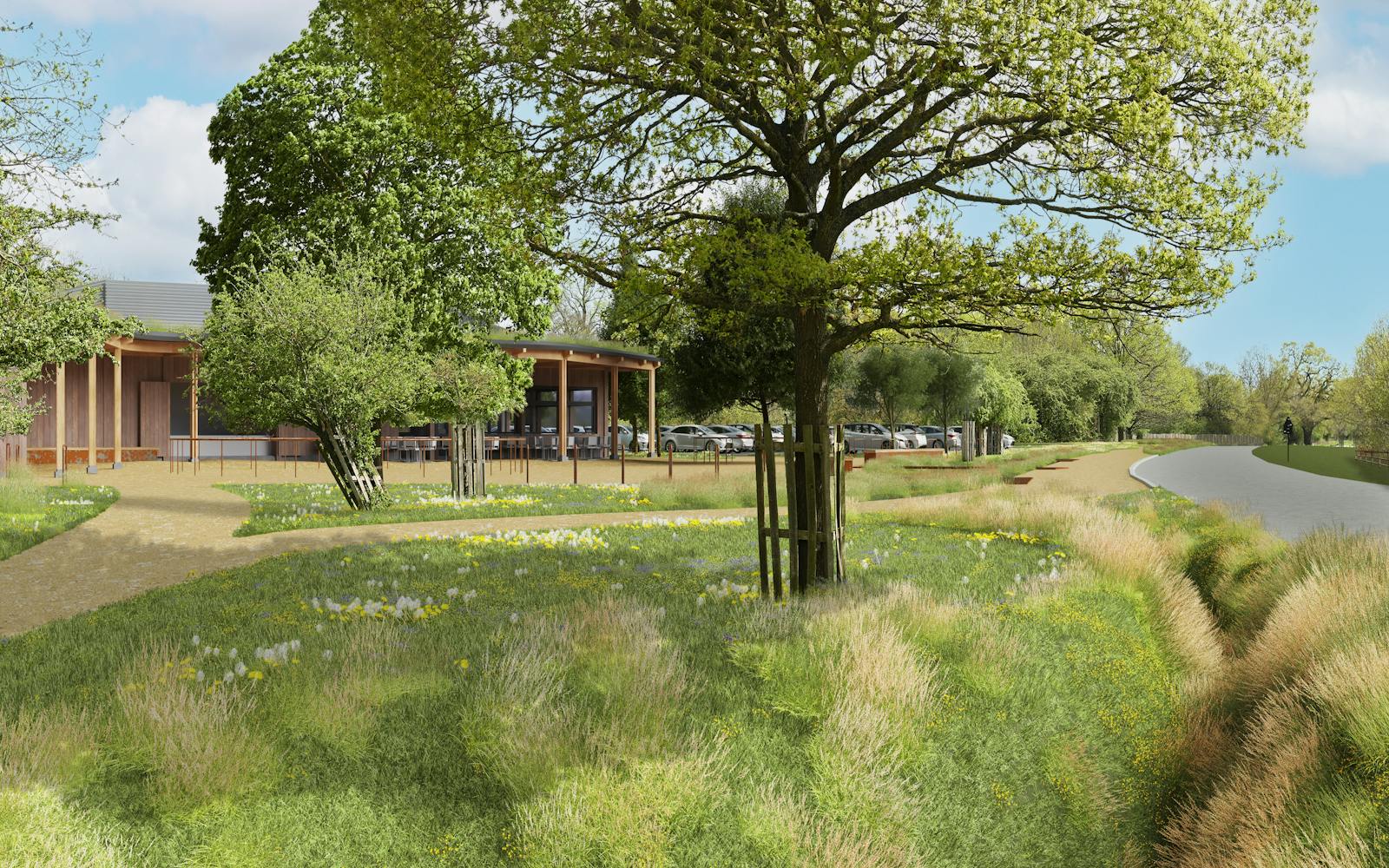
A modern, sustainable and family-friendly café
The current café consists of temporary structures installed two decades ago, which no longer meet the needs of park visitors. The new design, led by David Morley Architects, will provide a sustainable, modern café with more seating, improved amenities and a focus on fresh, seasonal produce. Cycle hire and better access to walking and cycling routes will also be introduced.
The surrounding landscape will be restored to support biodiversity and improve the visitor experience. The café and wider scheme will achieve BREEAM ‘Excellent’ certification, reflecting strong environmental performance.
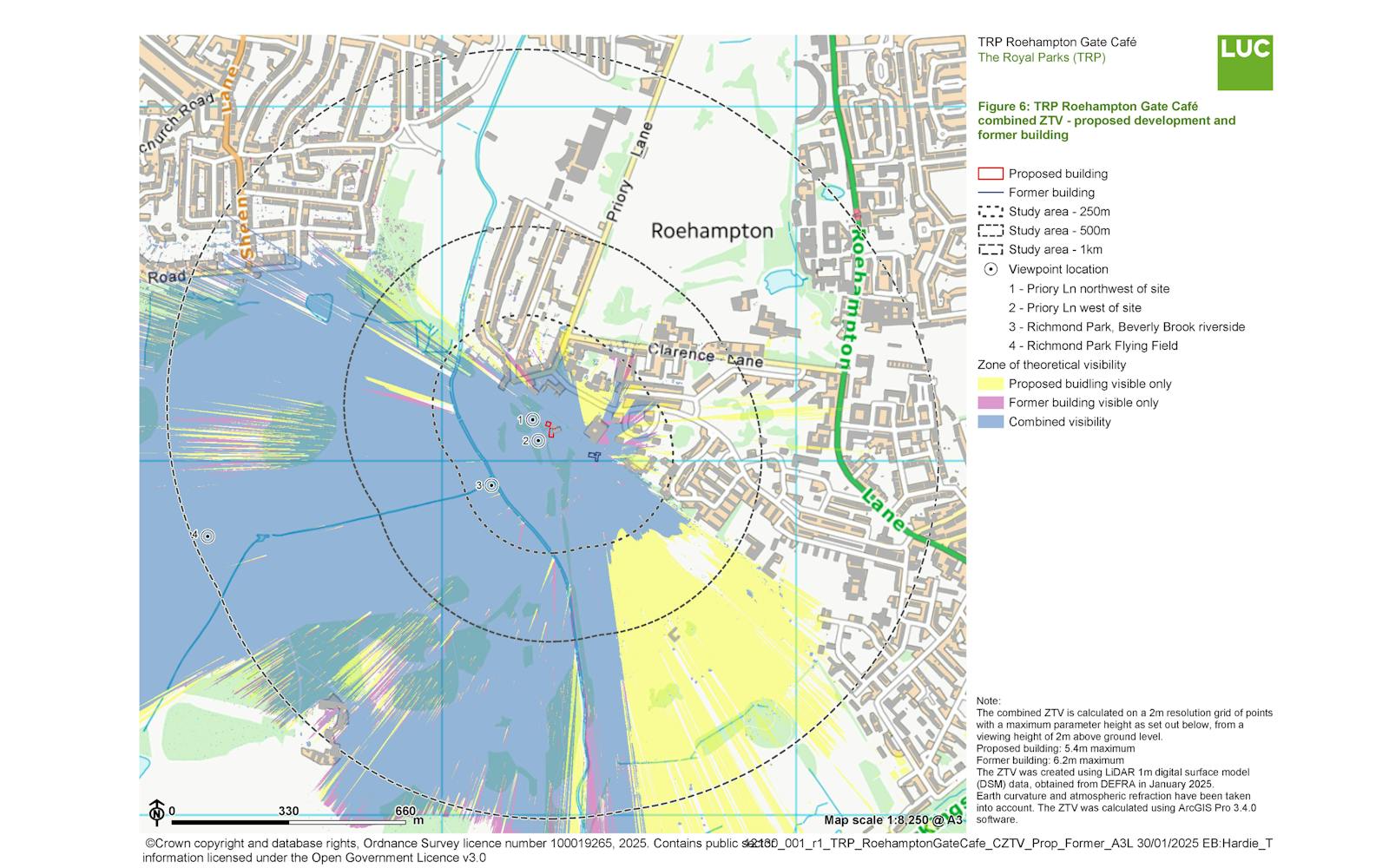
A sensitive site with multiple designations
Richmond Park is a National Nature Reserve (NNR) and Site of Special Scientific Interest (SSSI), and is also designated as Metropolitan Open Land (MOL), Public Open Space, a Registered Park and Garden, a Conservation Area, an Archaeological Priority Area and a Special Area of Conservation.
These layers of designation meant the planning process required careful design and evidence-based support.
“We are thrilled to receive planning permission for this excellent project that we know many have been looking forward to for a long time. The new café at Roehampton Gate will be a vital social space for many residents and park visitors, and the improved design will mean more people will enjoy the space for years to come. The significant landscape improvements being made will have a positive impact on the biodiversity of the park, fitting for a National Nature Reserve and Site of Special Scientific Interest.”
Paul RichardsRichmond Park Manager at The Royal Parks
The Royal Parks will confirm the project timeline in due course.
